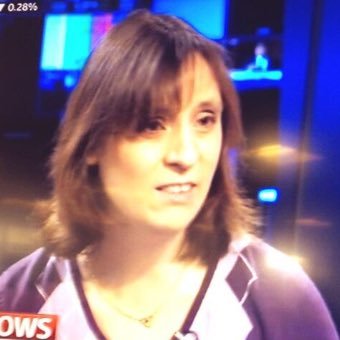State of the Industry: Is M&A Back on the Agenda for Tech Vendors?
Ahead of IBC, TV Tech sister brand TVBEurope talks to Devoncroft Partners' Josh Stinehour to discuss the current state of the media tech industry and why he's feeling 'widely optimistic' about the next 12-24 months

Over the past few months, the media industry has seen a number of high-profile mergers and acquisitions. From Warner Bros and Discovery’s merger, to Viaplay’s acquisition of Premier Sports, to Thomson Broadcast buying GatesAir, M&A activity has definitely picked up.
Is this a result of the industry coming out of the pandemic, or are other factors at play? TV Tech sister brand TVBEurope sits down with Devoncroft Partners’ Josh Stinehour to get his opinion.
TVBEurope: We’re starting to see a lot of merger and acquisition activity within the industry—from the major streamers to tech vendors—is this due to the industry coming out of the pandemic, or are there other reasons?
Josh Stinehour: I would separate out the discussion of merger and acquisitions within the media technology supplier community from merger activity of media and streaming companies. Consolidation among media companies over the past decade has altered the market landscape, but it is increasingly a relic of the past.

Anti-trust resurgence in North America and the continued resistance of European authorities to cross-border combinations will make any further media consolidation prohibitively challenging to execute. Add to this the disappointing economic receipts of recent media deals, and I would even hazard the prediction that many of the deals of the past decade will get unwound in the next decade.
As it concerns the technology-side of the industry, the relegation of mergers and acquisitions as a tool of media strategist is a positive development. It returns oxygen to true, organic business model innovation in the media industry – which I argue requires technology investment.
I write with more authority on the question of merger and acquisition activity within the media technology supplier community. Having tracked M&A activity on the technology-side of the media industry for the past 20 years (I wish that was a typo), first as an investment banker and now in a research capacity, the number of deals is not elevated versus annual levels observed during the past decade.
What was elevated was the level of investor interest observed during the pandemic. Note the choice and emphasis on the tense in the previous sentence. We observed several high-profile deals (including equity raises) at levels and valuations incongruent with the addressable market for media technology solutions. Those deals aren’t going to end well for someone.
Get the TV Tech Newsletter
The professional video industry's #1 source for news, trends and product and tech information. Sign up below.
TVBE: In terms of the streamers, and particularly the sports streamers, is the M&A activity down to the squeeze on sporting rights and their inability to break the hold of the major broadcasters or newer tech giants?
JS: I attribute the cause of the merger and acquisition activity of sports streamers to the current iteration of the business model. As of late 2022, it is awful. For those disagreeing, how should we instead label businesses with poor (and not improving) unit economics and negligible benefits from greater scale?
The matter of sports rights is informative. If losing out on sports rights is the worst thing in the world, then securing sports rights is a close second. BT Sports operating losses totalled £222 million in its latest fiscal year; DAZN’s 2019 operating loss (pre-pandemic) totalled £1.9 billion; and a condition of AT&T’s divestiture of DirecTV was for AT&T to fund the losses attributable to the NFL ticket (after ironically making the extension of the NFL ticket a condition of acquiring DirecTV in 2015).
There is another dimension to the business of streaming sports, and it is one of the most marvellous beliefs to ever take hold in the media industry. For reasons unsupported by observation, many industry professionals and selected institutional investors believe there is a ‘large’ economic opportunity in lower-tier live events.
If there is an investable, business opportunity in streaming sports, then it is going to require some combination of lots of equity financing, a larger portfolio of media assets, or a greater fool. M&A is a preferred tool to find each.
TVBE: Do you think we’ll see more M&A within the streaming industry?
JS: Yes.
TVBE: How much of this is being driven by the fact that consumers are starting to drop some of their subscriptions due to the cost of living situation?
JS: A substantial amount, as it is piercing the bubble of wishful thinking that was the consensus view of the global addressable market for streaming services. Said differently, the reality of the size and profile of the market for streaming services is far less lucrative than the investor class thought on April 18, 2022, the day before Netflix’s Q1 2022 earnings release.
I am widely optimistic for the media technology supplier community."
Streaming ventures are now evaluated based on – previously old-fashioned – financial metrics and more thoughtful views of true addressable markets. Even more frightening, valuation levels of streaming ventures are (finally) aligning with traditional media businesses – as was always going to happen.
TVBE: With regards to the tech vendor side, how do you view the outlook over the next 12-24 months?
JS: I am widely optimistic for the media technology supplier community. Cloud specifically, virtualized technology generally, is business salvation. Upon such a technology foundation, new business models can ameliorate industry inefficiencies with go-to-market and research and development investments.
Such a world view makes me cynical about the value proposition of M&A for technology vendors—at least in the near-term. Unless and until a buyer has transitioned their business model, M&A is likely a distraction.
TVBE: Do you foresee any major M&As on the horizon and who should we be watching?
JS: No, but they always happen. I am curious to observe how the malinvestments made during the pandemic into certain technology suppliers and segments is unwound. My guess is it won’t happen gracefully.
Jenny has worked in the media throughout her career, joining TVBEurope as editor in 2017. She has also been an entertainment reporter, interviewing everyone from Kylie Minogue to Tom Hanks; as well as spending a number of years working in radio. She continues to appear on radio every week and occasionally pops up on TV.

